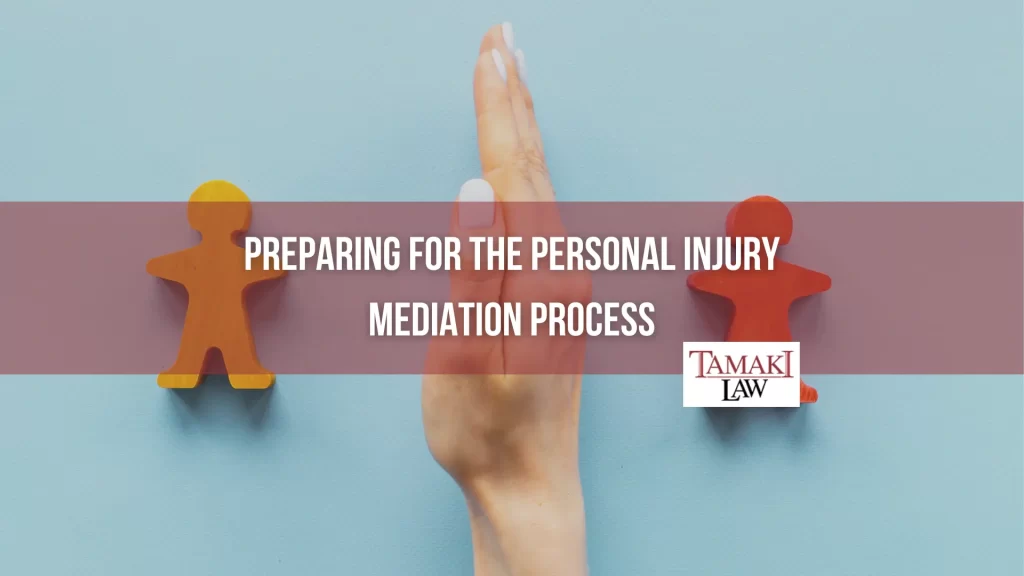
Mediation is a tried-and-true method for resolving personal injury claims in Washington State. It offers a quicker, cheaper, less stressful path toward a successful resolution to your claim. However, if you choose to go through mediation as part of your claim, it’s essential to understand the mediation process.
At Tamaki Law, our Washington State personal injury attorneys firmly believe in the power of mediation. At the same time, we know it’s crucial that clients thoroughly understand the process to reach a favorable outcome.
Mediation, Demystified
To properly prepare yourself for mediation, you must know how it works and the steps involved. Here are the essential things you need to know about mediation in Washington.
What Is Mediation?
Mediation is a process where a neutral third party, known as the mediator, aids both sides in resolving their dispute through open communication and negotiation. The mediator’s role isn’t to decide the case but rather to facilitate a mutual agreement.
Choosing a Mediator
Selecting the right mediator is crucial. Both parties involved typically agree on a mediator. The lawyers for each side will probably suggest finding a mediator experienced in personal injury claims who is reputable and skilled in fostering open communication. Objectivity is critical in a mediator, as they must remain unbiased throughout the process.
The Steps of the Mediation Process:
- Preparation: Both sides gather necessary information and documents before mediation starts.
- Opening: The session begins with the mediator outlining the process and ground rules. Each side then presents their viewpoint in opening statements.
- Discussion: Through facilitated dialogue, the mediator clarifies points and identifies central issues.
- Negotiation: The parties discuss potential solutions. The mediator will meet with each side separately to better understand their needs and act as a go-between with settlement suggestions.
- Agreement or Impasse: If a mutual solution emerges, the mediator and each side’s attorneys will draft a settlement agreement. If not, the process might end without resolution.
The Potential Outcomes of Mediation
The goal is a mutual agreement, leading to a signed settlement. But not all mediations reach this point. When the parties can’t find common ground, they might consider other avenues like arbitration or a civil trial. Even without a settlement, mediation often sheds light on the issues in the case and can guide your future legal steps.
The Neutral Guide: Role of the Mediator
The mediator plays a pivotal role in the mediation process, often acting as the compass guiding both parties toward potential resolution. But what exactly does a mediator do, and what boundaries exist in their role?
How Mediators Facilitate Discussions
A mediator’s goal is to maintain a smooth, respectful, and productive conversation between the parties. By asking insightful questions, clarifying misunderstandings, making suggestions, and encouraging open communication, mediators help parties find common ground. They create a safe space where each side can express their views and concerns, leading the way toward potential solutions.
What Mediators Can and Cannot Do
Mediators are facilitators, not judges or decision-makers. They assist the parties in reaching a mutual agreement by guiding the discussion and helping explore solutions. However, they can’t make decisions or impose solutions on the parties. They can’t provide legal advice or determine who is right or wrong in the dispute. Their role is not to take sides but to promote a cooperative problem-solving approach where both parties feel heard.
Preparing Yourself for the Mediation Process
 Proper preparation for mediation can boost your confidence and influence the outcome of your session. Your best preparation is to engage a personal injury lawyer to attend the mediation with you and protect your interests. Here are some additional tips to help you get ready for this critical phase of a personal injury claim:
Proper preparation for mediation can boost your confidence and influence the outcome of your session. Your best preparation is to engage a personal injury lawyer to attend the mediation with you and protect your interests. Here are some additional tips to help you get ready for this critical phase of a personal injury claim:
Make Notes and Prioritize Essential Issues:
Start by jotting down key points you want to address during mediation. List your concerns, needs, and desired outcomes. By prioritizing these issues, you create a roadmap for the session. These notes can also be quick reference points, keeping you focused during discussions.
Gather Essential Evidence:
Evidence is your strongest ally in mediation proceedings. Collect all relevant documents, photographs, medical records, witness statements, and other pertinent material. Organizing these in a folder or binder ensures you have everything at your fingertips.
Maintain Your Composure Throughout the Process
Your demeanor matters. Stay calm and composed, even if discussions heat up. Remember, the goal is to find common ground, and a relaxed, respectful attitude paves the way for a constructive dialogue.
Navigating Tricky Questions: What Not to Say in Mediation
While mediation encourages open dialogue, it’s essential to tread carefully during these discussions. Some words or phrases can derail the process or inadvertently weaken your stance. Here are some things to avoid:
- Absolute Statements: Phrases like “I’ll never…” or “It’s always…” can close the door on constructive conversations.
- Blame Game: Avoid directly blaming the other party with your statements. Focus on your feelings and concerns instead.
- Guesswork: Refrain from making assumptions or speculating. Stick to facts and what you know.
- Discussing Outside Offers: Mentioning other offers or making comparisons like “Another mediator would have…” can be counterproductive.
- Threats: Statements that hint at retaliation or escalation, such as “I’ll see you in court,” can hinder the cooperative mediation atmosphere.
Avoiding these kinds of statements is essential to reaching a favorable outcome during mediation. Here are a few more tips to remember:
Listen and Think Before Speaking
Mediation is as much about listening as it is about speaking. Careful listening gives you insight into the other party’s perspective and concerns. It also allows time to process what’s said and formulate thoughtful, effective responses.
Your Attorney Can Help Guide Your Responses
An experienced attorney can advise you on how to phrase your concerns and answer tricky questions. In breaks or private sessions, you and your attorney can discuss strategy so you can address issues effectively without compromising your position.
Making the Most of the Mediation Process
Mediation offers powerful benefits in a personal injury claim, but it’s crucial to have the right guide. The Washington State personal injury attorneys at Tamaki Law know how to safeguard your rights and advance your interests during mediation. Call (800) 801-9564 now or reach out online for a free case review.
Related posts
What to Do if You are Involved in a Car Collision
What Makes Tamaki Law Different From Other Law Offices?
Know Your Rights about Dog Bites
